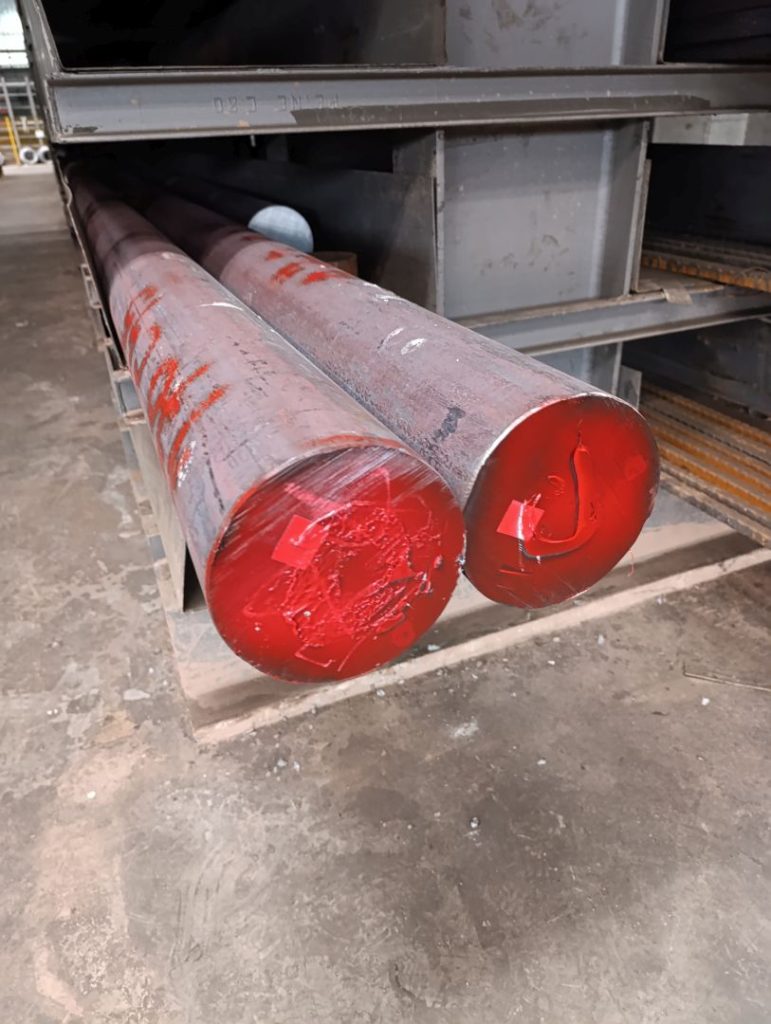Tool steels are noble carbon or alloy steels with a carbon content of 0.6% to 2.06% or alloyed (mainly with Cr, W, V, Mo, Co), and are used for making tools. The basic properties that tool steels must possess are wear resistance and high impact strength. Production (economic) requirements and properties for tool steels are: the possibility of machining tools by separating particles, high hardenability, high hardenability, slight dimensional changes during work, machinability, corrosion resistance, polishing ability, cost-effectiveness, etc.
Special steels
Products / Special STEELS
Structural (carbon) steels
Structural (carbon) steels are used for making various structures (cranes, supports), in construction (bridges), mechanical industry (vehicle parts, ship structures, machine parts), oil industry, etc. These steels are used in their raw state (without heat treatment).
Tool steels
Carburizing steels
Carburizing steels are a group of steels that, after processing, carburize the outer (surface) layer by separating particles. After carburizing the outer layer, quenching is carried out in order to achieve high wear resistance of the outer layer and increased toughness of the uncarburized core. Carburizing steels before carburizing generally contain 0.1-0.2% C, and after carburizing the outer layer contains 0.8-0.9% C. The carburizing process is called carburizing. These steels are used in the mechanical industry (manufacturing gears and other transmissions), special-purpose industry (manufacturing weapons), shipbuilding, metal processing, etc.
Steels for automatic machines
Machine tool steels are intended for the production of parts on highly productive automatic machines. Their main characteristic is better machinability, compared to other steels. These steels achieve their machinability by means of a modified chemical composition that promotes the formation of inclusions, which enable the creation of brittle and short chips.
Improved steels
Improved steels are obtained by the process of heat treatment, i.e. hardening in order to obtain appropriate mechanical and chemical properties. It is particularly important and characteristic that improved steels have a high yield strength and good strength and toughness in ferrous metallurgy. This favorably affects the fatigue limit, i.e. such steels do not tire quickly, and in addition, they are very resistant against dynamic stresses, especially alternating stresses and impacts.
Steels for improvement
Steels for improvement can be carbon (non-alloyed) and low-alloyed, which through the process of heat treatment (tempering and softening) achieve appropriate strength properties, but also the necessary toughness. These steels are most often used in the mechanical industry (production of axles and shafts), automotive industry, special industry, shipbuilding, metalworking (production of screws, wedges, levers, etc.).
The main characteristic of the improved steels is that they are quenched in water from the forming temperature, and additionally softened at a temperature of 680-710 °C, whereby the appropriate strength properties are achieved, as well as the required toughness. They have the same or similar applications as steels for improvement.

